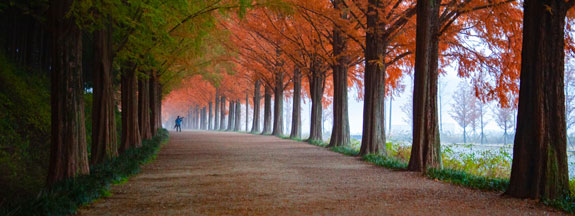On Christmas Eve, my meeting had a great speaker. He spoke about Tradition 1 which says:
Our common welfare should come first; personal recovery depends upon A.A. unity.
In his story, the fellowship of AA saved his life. It taught him how to love himself. How to care what he looked like and smelled like. To take pride in himself.
Other speakers who shared after him all talked about the fellowship of AA, specifically relating to unity and their social relationships from AA. Although I wasn’t called on to speak, I do have strong opinions about this topic.
My Social Experience in AA
Since I work from home and was not previously involved in many organizations, AA is the first opportunity since college that I’ve had to meet new people. On the one hand that has been a great thing: there’s always something to do.
On the other hand, AA is made up of imperfect humans, many of them sick alcoholics, so the social dynamics are fairly primitive. In a lot of ways, it reminds me of high school. The cool kids, the mean girls, cliques, the queen bees, etc. For clarity, I go to a men’s meeting, so all of these people are men.
In the beginning, I was excited. I thought I had a group of friends who all liked me and valued me. We went to dinner after every Monday meeting, joked around, took pictures together, etc. Once the newness wore off, I realized that many of these people I had put on pedestals were highly flawed. Particularly in regards to how they relate - and talk about - women. As time went on, it was clear that they were a clique. One of two major cliques in the Monday meeting. Two cliques that were literally split down the middle of the room. And it further became clear that I was only valued insomuch as I was part of the clique. On an individual level, I was at best a very casual acquaintance to most of those guys.
After 9 months of trying to be fit in and be accepted by this clique, they had some intra-clique drama and ended up leaving the meeting. I didn’t follow. I doubt most of them even noticed I was gone. No one kept in touch. It hurt - in some ways trying to be accepted by them caused me a lot of anxiety - but in the end it was a good reminder not to put people on pedestals. Especially people in recovery.
Humans will always let you down. You need to trust your higher power for comfort and acceptance, not look to people. It was also a wake up call that I need to learn to love myself, not worry about what strangers think of me.
Better Social Experience
Next, everything changed for me in AA. I was invited to a Memorial Day BBQ at my friend’s sponsor’s house. Not only did I feel truly welcomed and accepted by them, but I got invited to a 12 week step study. A study that I later found out was organized by the queen bee from the other clique in the Monday night meeting. He wasn’t personally involved with it, but I guess it was his baby.
So I had crossed the invisible line down the middle of the room. I was no longer part of any clique. I liked people from both sides. And decided to stay unaligned from here on out.
The step study itself wasn’t that groundbreaking as I had already completed the steps with my sponsor, but it was an amazing opportunity to get to know people in a more intimate setting. While I wouldn’t say that I made any close friends in the process - I definitely formed a new social group that notices when I’m not around.
The Artists Way
From there, we went on to do another 12 week program with a small intimate group of people. Some people from the 12 week step study, some people from the Monday meeting I attend, two people I hadn’t met before the program and a past co-worker of mine.
Over the 12 weeks, those that stuck with the program, formed a strong bond. These are all people that I genuinely love, several of them that I consider friends. Many of us transformed over those 12 weeks and were sad to see it come to an end. And now that it is over, we are continuing to get together, to keep the intimate experience alive.
My Takeaway
Not only is AA full of imperfect people (all humans are imperfect), it is full of very sick people who can’t manage their own lives. That’s why they are there after all. Some of the most toxic people I’ve met in my life are people in AA with long term sobriety - such as the two queen bees of competing cliques in my meeting.
Despite the traditions and steps, not everyone will be your friend, not everyone will like you, not everyone will treat you with respect. But there are many people who are working a good program - that want to change - that want to be a community that grows together - who make good company.
Seek those people out, love the others from a distance. But never put people on a pedestal. Never make people your higher power. They will always let you down.




Leave a Comment